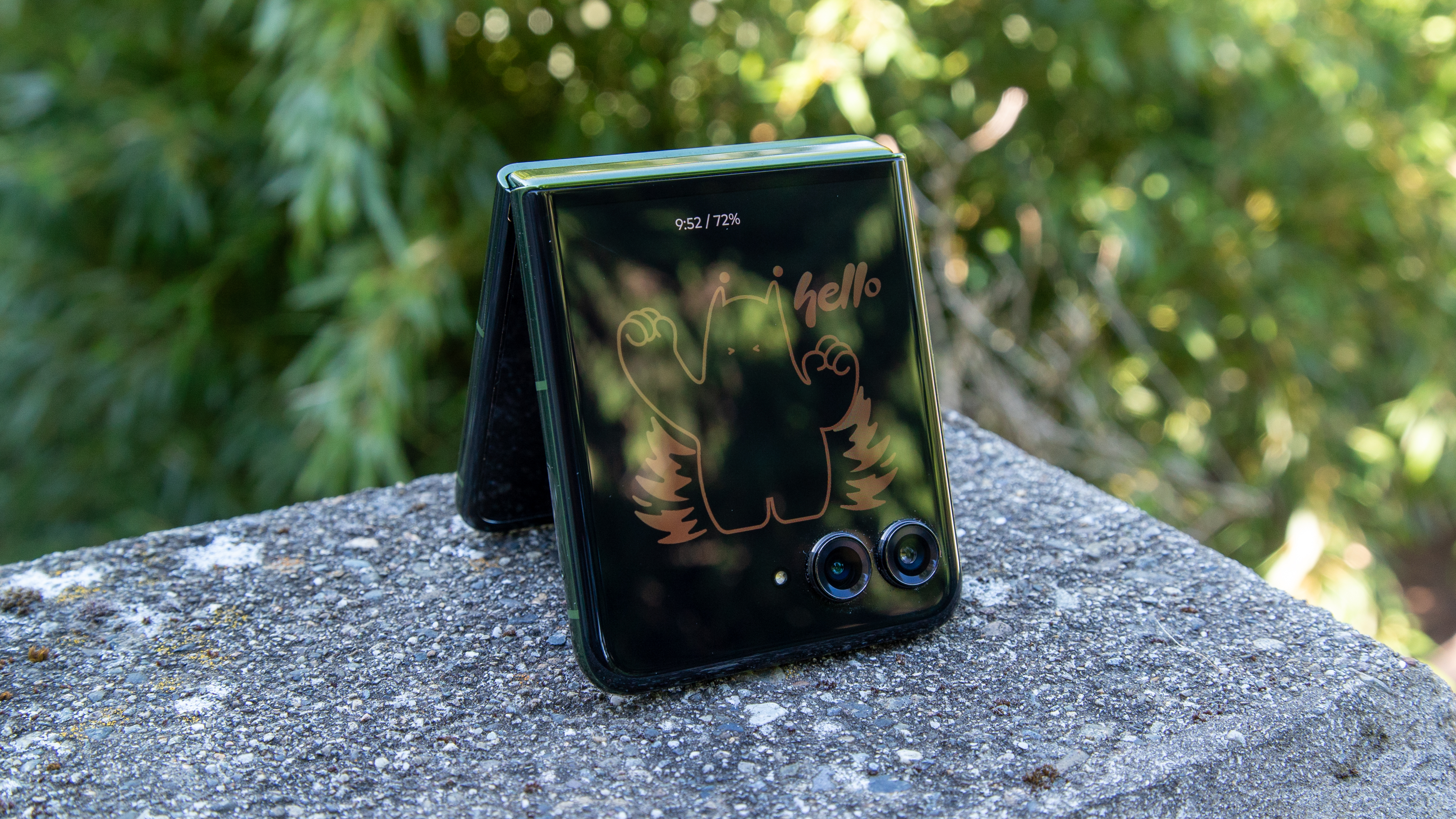How the gut microbiome affects mental health

The concept that the gut is central to human health is fundamental to Ayurvedic medicine, traditional Chinese medicine, and Hippocratic medicine. Almost 2,500 years ago, the ancient Greek physician Hippocrates said that "all disease begins in the gut" The gut’s importance became increasingly recognized in the early 2000s, prompted by a reduction in sequencing prices and a range of computational advances that allowed scientists to assemble an initial picture of microbial diversity within the gut. Discoveries surrounding the gut microbiome’s relationship to a variety of diseases soon arose, with links found to type 2 diabetes, obesity, cardio-metabolic diseases, and neurodegenerative diseases.1,2,3 It was also found that gut microbiota could modulate responses to cancer immunotherapy.4 A new research area has recently opened up, focusing on the gut microbiome’s effect on the brain, more specifically, the gut and mental health. Image Credit: Norgen Biotek Corp. Multiple pathways along the gut-brain axis Image Credit: Norgen Biotek Corp. Bacterial metabolites as signaling molecules Microbes secrete a range of substances into the gut before directly reaching the brain via blood vessels. These include neuroactive compounds, short-chain fatty acids (SCFAs), and cell-wall components such as lipopolysaccharides (LPS). In 2016, researchers used mouse models of Parkinson's Disease (PD) to determine that short-chain fatty acid signaling modulated microglia and enhanced PD pathophysiology. It was also noted that transferring microbes taken from the guts of Parkinson's patients to mice would lead to the development of motor dysfunction in the mice. Motor dysfunction occurred when mice were only given the short-chain fatty acid metabolites taken from Parkinson's patients.5 Recent research has shown that ammonia produced in the gut has the potential to help replenish GABA, buffering stress in the host. Microbial nitrogen metabolism was important in host stress vulnerability due to its role in maintaining brain glutamine availability. Introducing a urease-producing strain in the form of Streptococcus thermophilus reversed depression-like behaviors in mice. These findings open doors to potential therapies because ammonium chloride (NH 4 Cl) helped manage behavioral abnormalities and GABAergic deficits in mouse models of depression.6 Microbial interaction via the vagus nerve Initial reports on the impact of stress on the gut highlighted a connection between the gut and the brain, and it is now becoming clear that one element of this connection could be via the vagus nerve. For example, early studies on the relationship between the gut microbiome and stress showed that germ-free mice experienced increased detrimental reactions to stress versus non-germ-free mice. Subsequent work showed that stress due to the premature separation of rat pups from their mothers induced long-term changes in their gut microbiome.7 Work has now begun towards a mechanism to understand why mice that received Lactobacillus rhamnosus JB-1 supplements produced a reduced amount of stress-induced corticosterone and displayed fewer depression and anxiety-related behaviors. It was also observed that this probiotic supplementation changed the production of a protein receptor in the brain that could bind to the neurotransmitter ℽ-aminobutyric acid (GABA). Mice with a severed vagus nerve saw no benefit from the probiotic supplementation, suggesting that these beneficial effects were transmitted via the vagus nerve.8 Image Credit: Norgen Biotek Corp. Microbes interact with enteroendocrine cells Microbes can also interact with enteroendocrine cells (EECs) present in the gut lining to send hormones throughout the body. EECs detect shifts in luminal microorganisms via microbial metabolites and communicate with host body systems through neuroendocrine molecules like GLP-1 or serotonin. One recent transcriptome-wide association study of 23 tissues showed shared susceptibility genes between ulcerative colitis, Crohn's disease, and schizophrenia. Analysis of single-cell and bulk RNA-sequencing data revealed that gene expression was strongest in enteroendocrine cells and neurons in the rectum and colon, suggesting a possible link to the gut-brain axis.9 Gut microbes impact inflammation From a more indirect perspective, gut microbiota affect the brain by influencing immune cells and inflammation pathways. Inflammation has been associated with depression for more than 20 years. One demonstration of this is that several antidepressants have been shown to reduce the endogenous production of pro-inflammatory cytokines, thus modifying immune reactivity in the brain. The pathogenesis of depression is also believed to increase bacterial translocation because of disrupting the GI tract’s tight junctions and barrier integrity. Recent evidence also suggests that microbiota dysbiosis is linked to the development of a number of chronic inflammatory disorders. Several gut microbial taxa have been shown to both stimulate anti-inflammatory cytokines (including IL-10) and downregulate inflammatory cytokines. Rodent experiments have provided evidence to support a link between microbiota and depression via inflammatory markers, with many clinical studies demonstrating a decrease in depressive symptoms after treatment with probiotics.10,11 Image Credit: Norgen Biotek Corp. Metagenomics and metabolomics links the gut microbiome to MDD Recent research involved the analysis of whole-genome shotgun metagenomic sequences, combining this with paired Healthy Controls (HCs) and untargeted metabolomic data from more than 300 patients with Major Depressive Disorder (MDD). A network of bacteria, bacteriophages, and metabolites was identified, and this network was found to be differentially expressed between HCs and patients with MDD. For example, MDD patients were primarily characterized by an increase in the genus Bacteroides and a decrease in the genera Eubacterium and Blautia. Concordance was observed between the differentially expressed genes and fecal metabolites because both data sets pointed to differential expression of amino acids (ℽ-aminobutyrate, tryptophan, and phenylalanine). These discoveries identified a combinatorial marker panel able to robustly discriminate MDD from HC individuals, potentially supporting easier diagnosis and the development of useful probiotics or postbiotics.12 Image Credit: Norgen Biotek Corp. Combining host and microbiome sequencing Long-term cohort studies collecting multiple datasets offer a wealth of beneficial information. For example, FINRISK 2002 analyzed matching human genotypes and shotgun fecal metagenomes for almost 6,000 people, combining these genome-wide associations with extensive health and dietary data to predict incident disease associated with gut microbial variation. Health records were made available for up to 16 years following the initial microbiome samples, enabling observational validations of predicted effects. Mendelian randomization predicted 96 causal effects in disease-to-microbe and microbe-to-disease directions. Of these effects, 34 indicated that it was possible to use microbial abundances to predict a disease and that a significant proportion of those diseases were neurological and psychiatric. For instance, it was predicted that increased Faecalicoccus could have a causal effect on anorexia nervosa, while increased Morganella and Raoultella were predicted to have causal effects on MDD. Performing Mendelian randomization in the reverse direction, using microbial level as an outcome and disease risk as an exposure, resulted in most predicted causal effects involving autoimmune and inflammatory diseases.13 Norgen's stool microbiome workflow Norgen offers a comprehensive workflow for studying the fecal microbiome, including DNA and RNA collection, extraction, and sequencing. A range of sample storage and preservation tubes is available, including patented stool nucleic acid collection and preservation tubes; CE-IVD marked for diagnostic uses (Cat. Dx45660) or research uses (Cat. 45660). Fecal collection mini tubes (Cat. 27650) are available for mouse or other rodent microbiome studies, along with a fecal swab collection and preservation system (Cat. 45670-B). Norgen's stool DNA extraction kits can accommodate high-throughput approaches with spin columns (Cat. 27600, 65600) or magnetic beads (Cat. 55700, Cat. 63100). Magnetic bead protocols can also be automated using magnetic rod-based systems, Hamilton Vantage, and comparable machines. Researchers working with transcriptomics can extract both DNA and RNA via Norgen's stool total RNA purification kit (Cat. 49500), or its stool nucleic acid isolation kit (Cat. 45600). Users can also prepare their own 16S or ITS Metagenomic libraries for sequencing, but Norgen also offers metagenomic sequencing services. References and further reading Fan, Y. and Pedersen, O. (2020). Gut Microbiota in Human Metabolic Health and Disease. Nature Reviews Microbiology, 19(1). https://doi.org/10.1038/s41579-020-0433-9. Fang, P., et al. (2020). The Microbiome as a Modifier of Neurodegenerative Disease Risk. Cell Host & Microbe, 28(2), pp.201–222. https://doi.org/10.1016/j.chom.2020.06.008. Foster, J.A. (2022). Modulating brain function with microbiota. Science, 376(6596), pp.936–937. https://doi.org/10.1126/science.abo4220. Ansaldo, E. and Belkaid, Y. (2021). How microbiota improve immunotherapy. Science, 373(6558), pp.966–967. https://doi.org/10.1126/science.abl3656. Sampson, T.R., et al. (2016). Gut Microbiota Regulate Motor Deficits and Neuroinflammation in a Model of Parkinson’s Disease. Cell, 167(6), pp.1469-1480.e12. https://doi.org/10.1016/j.cell.2016.11.018. Wang, P., et al. (2023). Gut microbiome-derived ammonia modulates stress vulnerability in the host. Nature Metabolism, (online) 5(11), pp.1986–2001. https://doi.org/10.1038/s42255-023-00909-5. O’Mahony, S.M., et al. (2009). Early Life Stress Alters Behavior, Immunity, and Microbiota in Rats: Implications for Irritable Bowel Syndrome and Psychiatric Illnesses. Biological Psychiatry, 65(3), pp.263–267. https://doi.org/10.1016/j.biopsych.2008.06.026. Bravo, J.A., et al. (2011). Ingestion of Lactobacillus strain regulates emotional behavior and central GABA receptor expression in a mouse via the vagus nerve. Proceedings of the National Academy of Sciences, 108(38), pp.16050–16055. https://doi.org/10.1073/pnas.1102999108. Yu, L. and Li, Y. (2022). Involvement of Intestinal Enteroendocrine Cells in Neurological and Psychiatric Disorders. Biomedicines, (online) 10(10), p.2577. https://doi.org/10.3390/biomedicines10102577. Eltokhi, A. and Sommer, I.E. (2022). A Reciprocal Link Between Gut Microbiota, Inflammation and Depression: A Place for Probiotics? Frontiers in Neuroscience, 16. https://doi.org/10.3389/fnins.2022.852506. Foster, J.A., Baker, G.B. and Dursun, S.M. (2021). The Relationship Between the Gut Microbiome-Immune System-Brain Axis and Major Depressive Disorder. Frontiers in Neurology, 12. https://doi.org/10.3389/fneur.2021.721126. Yang, J., et al. (2020). Landscapes of bacterial and metabolic signatures and their interaction in major depressive disorders. Science Advances, (online) 6(49), p.eaba8555. https://doi.org/10.1126/sciadv.aba8555. Qin, Y., et al. (2022). Combined effects of host genetics and diet on human gut microbiota and incident disease in a single population cohort. Nature Genetics, (online) 54(2), pp.134–142. https://doi.org/10.1038/s41588-021-00991-z. Acknowledgments Produced from materials originally authored by Norgen Biotek Corporation. About Norgen Biotek Corp. Norgen Biotek: Advancing science with best-in-class, scientist-backed innovations Norgen Biotek is a fully integrated biotechnology company that focuses on providing complete workflows for molecular biology sample preparation and analysis. With a diverse portfolio of over 600 products, the company delivers high-performance, user-friendly, and cost-effective solutions. Scientifically driven, industry trusted Norgen kits cover a broad range of applications from collection and preservation to isolation and purification. Our expert R&D team continuously develops cutting-edge technologies that set new industry standards for RNA, DNA, protein, and exosomal isolation, ensuring superior yield, purity, and integrity from even the most challenging sample types. Unparalleled performance At the heart of Norgen’s success is its patented Silicon Carbide (SiC) Technology. This proprietary resin exhibits uniform binding affinity for all RNA species, regardless of molecular weight or GC content. This ensures the full diversity of small and microRNA are captured while eliminating the need for phenol extraction. This innovative technology sets Norgen kits apart from others, positioning them as leaders in RNA purification. Comprehensive solutions for any challenge Norgen is committed to providing high-quality kits capable of processing a wide range of sample types, from ultra-low input samples such as liquid biopsies to highly impure samples like stool or soil. Our sample collection and preservation devices for stool and saliva simplify handling by rendering samples non-infectious by preventing microbial growth and inactivating viruses, while our blood and urine preservation solutions ensure the stability of highly vulnerable cell-free nucleic acids. To meet varying research demands, we offer multiple isolation methods including, but not limited to high-throughput and automation-ready magnetic bead-based formats. Additionally, our multiple-analyte kits enable the simultaneous purification of RNA, DNA, and proteins, maximizing data extraction from a single sample. Norgen offers an extensive variety of TaqMan qPCR kits designed for molecular diagnostic use, including lyophilized kits for easy shipping. Library preparation kits for both DNA and RNA samples are also available to support genomic applications. Norgen recently released their EXTRAClean technology, an innovative solution that minimizes background noise while providing high-purity RNA, significantly enhancing NGS performance. Why choose Norgen? Scientist-Driven Innovation – Developed by leading experts in molecular biology Proven Quality & Reliability – ISO 9001 and ISO 13485 certified, indicating a commitment to selling high-quality products Global Presence – We ship to over 150 countries and have a network of 60+ distributors Award Winning – Norgen Biotek Corp. was honored with the 2021 Innovative Leaders Award, and recognized as the 2024 Rapid Star Award Winner in the PCR category. Innovative Products – Hold more than thirty issued and pending patents for products presenting solutions for all research & clinical applications Driven by a mission to accelerate scientific discoveries, Norgen Biotek actively supports researchers by providing educational resources, technical workshops, and application notes. Their NorBlog serves as a hub for the latest scientific discoveries, protocol optimizations, and industry trends. Explore Norgen Biotek’s innovative solutions today and take your research to the next level. Sponsored Content Policy: News-Medical.net publishes articles and related content that may be derived from sources where we have existing commercial relationships, provided such content adds value to the core editorial ethos of News-Medical.Net which is to educate and inform site visitors interested in medical research, science, medical devices and treatments.


















